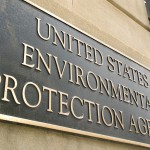Last week, the EPA doubled the number of public hearings on its recently proposed Clean Power Plan because of the public outcry that has ensued since its unveiling. Trouble is, these new hearings take place in the same old cities – Atlanta, Denver, Pittsburgh, and Washington D.C, all of which are relatively unaffected by the legislation.
Such hearings ostensibly give the public an opportunity to present data, views, and arguments concerning the proposed legislation. (And with a regulation like this one that is expected to be one of the costliest in the nation’s history, there are many affected voices to be heard.) But in reality, they are little more than an Agency box ticking exercise on route to implementation. This is doubly true when the audiences come from friendly cities.
Experts agree that coal producing states will bear the brunt of the legislation’s impact, given that there is little hope of meeting its requirements without retiring coal plants. This means that the economies of coal dependent states like Wyoming, West Virginia, and Kentucky, which produce over 60 percent of the nation’s coal, will be hardest hit. In fact, a recent report from SNL Energy says that EPA regulations are already causing a “free fall” in coal employment here.
Doesn’t the EPA think that the citizens of these states may have a thing or two to say about the legislation? Apparently not, for it scheduled no public hearings there.
Avoiding affected audiences is becoming a tradition at the EPA. Its recent 11 city listening tour that followed last year’s proposed legislation on new power plants largely avoided the top 10 coal producing states. Instead, the hearings occurred in environmentalist hotbeds like San Francisco, Seattle, New York, and Boston, where they were packed with anti-coal activists from the Sierra Club. Such an apparently concerted effort to avoid affected constituents while still going through the procedural motions is part and parcel of the EPA’s larger eyes wide shut philosophy.





